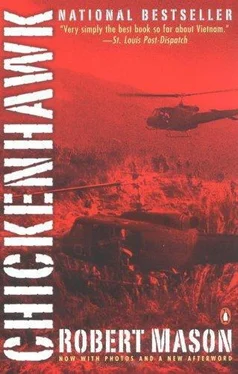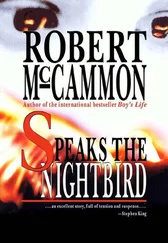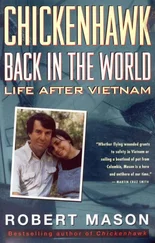The Croatan was on a collision course with the twenty-foot branch and its two passengers.
I turned to look up to the bridge, off to the starboard side of the flight deck. A T-shirted man stood just outside the glass, pointing ahead.
“These boys aim to run those birds down,” said Decker, who had just arrived. “Anybody’d do that’s just as likely to rape your dog or scatter your garbage.”
By then fifty men were crammed into the bow. I was at the point. The gulls still roosted, facing away from us. They had found the one place in the middle of the Pacific Ocean where they could stop and rest.
I leaned way over the edge to watch the collision. A perfect hit. The branch shattered in half, and the gulls crouched to leap, only to be sucked under the bow waves. They disappeared. Moments later, on the starboard side of the ship, about twenty feet behind the bow, first one and then the other bird scrambled out through the foam of the waves, shaking its head as its wings slapped the water.
Leese and I leaned against the starboard railing as we passed Bataan. Blue-gray mounds rose above the sea on the horizon. It was the only land we saw between California and Vietnam. Leese stared silently at the distant islands. He had landed a glider there.
“What was it like?” I asked.
“Real hot.” He turned to me, smiling. “It was the worst feeling I’ve ever had. Those fucking gliders didn’t land; they crashed. I thought that I was in control of those things during training, but when they were loaded up with men, they flew like fucking anvils.” He swore only when he talked about gliders.
“You crashed?”
“Well, I walked away from it, so you could call it a landing. Some people got hurt on mine, killed on others. It was a terrible idea, gliders…. These Hueys at least will be able to fly back after we drop off the troops.” to
“So what did you do after the landing?”
“You were on your own. That was the job. You made the landing, and then you found your way to friendly lines if you could. Some didn’t.”
“Damn! So how’d you get into gliders?”
“My whole flight-school class was suddenly redesig nated as glider-pilot candidates and shipped out. No reason. One day we were flying powered trainers and the next we were on our way to glider school.”
“You flew in Korea, too?”
“Yeah. Tactical air squadron.”
“Did you like that?”
“It was okay. As long as it has an engine, I like to fly it.”
“Why did you quit your job to come into the Cav?”
“I dunno, exactly. I guess I just like to fly too much. In combat. Combat flying is… a challenge. It scares the shit out of me every time I do it, but I think about it a lot. Getting into the Cav was good for me, I think. That desk looked more and more like a coffin every day. You know what I mean?”
I nodded, but I wasn’t sure.
“Yeah. At least in combat, it’s quick.” He grinned.
“Are you betting on the anchor drop?” I asked Kaiser.
“Fuck no. That’s strictly amateur crap,” he replied as he puffed into some dice in the break room. “Anyone who’d waste a bet to guess the exact time we drop anchor is an asshole,” he added.
“I put a buck on 9:37,” said Connors.
“You’re an asshole.”
“No wonder my mother was so disappointed.”
I had put in a buck, but I didn’t tell Kaiser.
Within a day of landing, the ship became a hive of activity. We received unofficial encouragement to “find usable surplus equipment” from the boat for our new camp. Ensign Wall agreed that certain “musty old mattresses” could be removed from the ship, and he went on a tour with Colonel Dogwell to discuss what specifically we could remove to our Hueys.
While hundreds of men scavenged stuff from every compartment of the ship, others were in the process of getting the Hueys ready. The vinyl coating on the flight-deck Hueys was peeled off and thrown overboard. A few days of sea air would not hurt them. Boxes of rotor blades were brought up to the deck to be sorted out and attached to their original mountings, so the Hueys on the flight deck would be ready to fly almost immediately upon arrival at Qui Nhon. The rest, including the one Leese and I would fly, would be brought up on the hangar-deck elevator when the deck was clear. It was supposed to take three days to get the Hueys assembled, checked, loaded, and off the ship.
Gear from the scavenger hunt was stashed on the helicopters. Work crews of enlisted men, warrant officers, and lieutenants carried stacks of mattresses, coils of rope, wire, yards of canvas, tools, and even lumber to the hangar deck and concealed the stuff in the Hueys. This wasn’t junk we were taking. The mattresses were new, and so were the ropes and tools. Obviously we were cleaning up.
The ship was going back to the States after it dropped us off, and they could get more gear there. We were going to live in the middle of the jungle somewhere and felt that we needed all the help we could get. I more or less agreed with this attitude, but I did have some pangs when I saw just how much we were packing into the helicopters.
Before we landed, I got the boatswain’s mate to make me a holster for my derringer. He wanted me to get him a couple dozen folding P-38 can openers from our C rations. During the confusion of this last day at sea, he came to our quarters and handed me the finished holster. A leather ring fitted over each shoulder, with an elastic band stretched between them across my back. The leather ring on my left shoulder had the holster sewn on near the bottom. I slipped the heavy derringer into the holster while the mate watched proudly. With the weight of the gun, the holster slid comfortably and invisibly under my arm. Maybe it would save my life; maybe I would use it to kill myself if I was captured. I really didn’t know why I wanted it.
When I climbed out of the hatch and looked beyond the rail, there was something to see, distant and gray, but unmistakably land. Two hours later we were in Lang Mai Bay, south of Qui Nhon, ready to drop anchor. The marine helicopter carrier Iwo Jima was on our right, and ten military-contracted freighters from the Lykes line were on our left. The anchor hit the water at a little after 11 a.m. on the thirteenth of September. It had taken us thirty-one days to get here from Mobile. The rest of our division had left a week after we had and arrived a week before.
While our helicopters were being readied for flight, the pilots hung around above decks, watching the doings of the other carrier.
Marine pilots flew their big H-34s off the rolling deck of their carrier to the hazy coastline and then returned. The marines’ concept of using helicopters was not the same as ours. We would live with our troops in the field. They returned to the safety and comfort of their ship each day. Knowing that made us feel tough.
The Iwo Jima was one of the ships that supported the recent battle of Chu Lai, which had occurred while we were en route. It was reported as the first regimental-size battle since Korea, involving more than five thousand American ground troops, ARVNs, and navy artillery. The final score was seven hundred VC killed and fifty U.S. Marines. No one seemed to care how many ARVNs were killed.
“By mid-afternoon of the second day, all Viet Cong re istance had ceased. Boots, equipment and weapons were scattered haphazardly across the fields, and great black scars in the earth still smoked from napalm. The bodies of the enemy hung in pieces from trees and hedgerows or lay charred in their tunnels and caves….” The battle, according to Time, had “proved that by combining accurate intelligence reports, fast planning, and careful selection of where and when to fight, the U.S. [could] more than hold its own in Vietnam.”
Читать дальше












